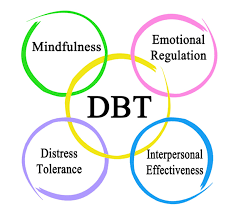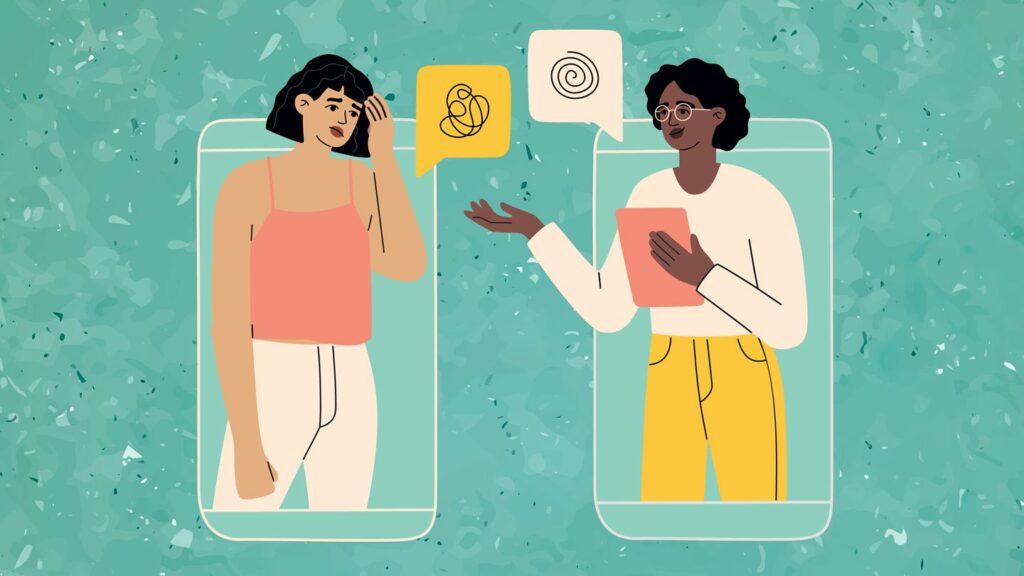Endogenous depression is a serious condition that can be difficult to treat. However, there are many proven treatment strategies that can help combat endogenous depression. In this blog post, we will discuss 7 of the most effective treatments for endogenous depression. We will also provide advice on how to find the right treatment for you or your loved one.
Contents
Understanding Endogenous Depression
 Endogenous depression is a type of major depressive disorder that does not have an apparent external cause. It’s thought to be the result of genetic, biological, and psychological factors. Endogenous depression can be difficult to diagnose. Because its symptoms look like those caused by other mental health issues or medical conditions.
Endogenous depression is a type of major depressive disorder that does not have an apparent external cause. It’s thought to be the result of genetic, biological, and psychological factors. Endogenous depression can be difficult to diagnose. Because its symptoms look like those caused by other mental health issues or medical conditions.
It is believed that endogenous depression is caused by an imbalance of neurotransmitters in the brain. Neurotransmitters are chemicals that help relay signals between nerve cells. Low levels of serotonin, norepinephrine, and dopamine may lead to depressive symptoms.
Additionally, high levels of cortisol (the body’s stress hormone) have been linked to more severe depression. The combination of all these biological factors can lead to a chemical imbalance in the brain, which can cause endogenous depression.
Different Endogenous Depression Treatment Options
There are several treatment options for people suffering from Endogenous Depression. Depending upon the severity of their condition, a person’s doctor may recommend one or more of the following:
Cognitive Behavioral Therapy (CBT)
CBT is a type of psychotherapy that helps people change destructive patterns of thinking and behavior in order to improve their mood and overall functioning. In the case of Endogenous Depression, CBT can help patients recognize and modify negative thought patterns that may be contributing to their depression. For example, CBT can help teach people how to better manage their stress levels, challenge irrational thoughts, and develop healthier ways.
Interpersonal Therapy
Interpersonal therapy focuses on improving a person’s relationships by helping them understand how different communication styles affect their interactions with other people. This type of psychotherapy can be especially helpful in helping people with Endogenous Depression build meaningful social contacts.
The main technique used in interpersonal therapy is to help people recognize and analyze the patterns of behavior that are influencing their relationships with others. And by increasing awareness of how other people’s behaviors affect them, they can learn to modify their own behavior in order to improve their interactions with others.
Dialectical Behavior Therapy (DBT)
 Another form of psychotherapy, DBT combines cognitive behavioral techniques with mindfulness and other Eastern practices to help patients become more aware of their moods and thoughts. DBT helps people with Endogenous Depression develop better coping skills for managing stress, regulating emotions, and improving relationships.
Another form of psychotherapy, DBT combines cognitive behavioral techniques with mindfulness and other Eastern practices to help patients become more aware of their moods and thoughts. DBT helps people with Endogenous Depression develop better coping skills for managing stress, regulating emotions, and improving relationships.
This type of therapy has been found to be especially helpful in treating severe mood swings, difficulty controlling emotions, and suicidal thoughts. As the therapist guides the patient through different DBT exercises, they become better equipped to manage their emotions and make healthier life choices.
Acceptance and Commitment Therapy (ACT)
ACT is a type of psychotherapy that focuses on helping people accept their emotions, thoughts, and beliefs without judgment. This approach works to help people with Endogenous Depression become more mindful. And less judgmental of their experience, enabling them to make better decisions about how they want to live their lives.
Many people with depression find relief from following an ACT program. The therapy helps them to recognize their thoughts and feelings for what they are, allowing them to accept their experiences without judgment or criticism.
Medication
In some cases, medication may be prescribed in addition to psychotherapy for treating Endogenous Depression. Antidepressants are the most commonly prescribed medications and can be used to help alleviate the symptoms of depression. However, it is important to speak with a doctor or psychiatrist about the best course of treatment for each individual case.
The different medicines may include:
- Selective serotonin reuptake inhibitors (SSRIs)
- Serotonin-norepinephrine reuptake inhibitors (SNRIs)
- Tricyclic antidepressants (TCAs)
- Monoamine oxidase inhibitors (MAOIs)
It is important to note that medications should be taken in conjunction with psychotherapy, and they may take several weeks before any improvement is noticed.
Support Groups
With the help of family, friends, and healthcare professionals, you can also benefit from joining a support group. You can gain great insight and advice from other people who are going through the same thing as you. Support groups enable you to share your story, learn from others’ experiences, and develop a community of understanding.
Many support groups are offered free or at a low cost, either online or in person. They are usually led by trained professionals who make sure that the group is a safe and supportive environment. Support groups can help you to develop problem-solving skills, learn how to better cope with your condition, and provide an opportunity for you to establish a social circle.
Alternative Therapies
This is verging on the realm of “complementary” treatments, many who feel that traditional medicine isn’t working for them have turned to alternative therapies to find relief. This can include things like:
- acupuncture
- massage therapy
- herbal supplements
- homeopathic treatments
It is important however that you talk with your doctor before trying any of these treatments, especially if you are already taking medication. Some therapies may interact negatively with the medications you are taking and some may even be dangerous.
Regardless of which type of endogenous depression treatment you decide to pursue, it is important to remember that a combination of therapies is often the best approach. Make sure to talk with your doctor and other healthcare professionals to ensure that all treatments are safe and effective for you.
Is Depression Curable Or Just Treatable?
Depression is a mental health disorder that can have significant and far-reaching effects on one’s life. It may be difficult to know if depression is curable or just treatable, and there is no one-size-fits-all answer to this question. While some people may experience complete remission of their symptoms after receiving treatment, others may need ongoing therapy or medication to help manage their condition.
The good news is that depression can be managed effectively with the right combination of treatment and lifestyle changes. However, several research studies have found that the best treatments for depression are those that are tailored to each individual’s unique needs and preferences. This means that different people may respond differently to various types of treatment. So it is important to work with a mental health professional to find the best approach for you.
Can I Treat Endogenous Depression On My Own?
Self-help and lifestyle changes can be effective ways to treat mild or moderate cases of endogenous depression. These are some strategies you can use to help manage your symptoms:
- Develop healthier routines for sleeping, eating, exercising, and relaxation.
- Engage in regular physical activity as directed by your doctor. Exercise has been found to reduce symptoms of depression.
- Establish a supportive social network and participate in activities you enjoy with others.
- Develop positive thinking habits by challenging negative thoughts that may be contributing to your depression.
- Learn relaxation techniques, such as deep breathing or meditation. These can help you cope with stress more effectively.
- Seek out counseling or therapy to help you face your depression, understand its causes and triggers, and develop healthy coping strategies.
- Make sure to take good care of yourself by engaging in activities that bring you joy and fulfill your emotional needs.
Whatever approach you decide to take, remember that it’s important to be patient with yourself and to stay consistent in your efforts. With time, dedication, and support, you can manage your symptoms of endogenous depression and lead a fulfilling life.
If you find that self-help strategies are not enough to relieve the symptoms of your depression, seek professional help from a mental health provider.
Conclusion
In conclusion, endogenous depression treatment is a complex process that may require the use of multiple treatment options and strategies. Although there is no one-size-fits-all solution for treating endogenous depression, psychotherapy, medications, and lifestyle changes. And, also other interventions may be used to help treat this condition.
It is important to work with a mental health professional in order to develop an individualized treatment plan that takes into account all aspects of the individual’s life. With proper treatment and support, individuals can improve their mental health and functioning, ultimately leading to a better quality of life.
For more information, please contact MantraCare. Depression is a mental illness characterized by persistent feelings of sadness, hopelessness, and loss of interest in daily activities. If you have any queries regarding Online Depression Counseling experienced therapists at MantraCare can help: Book a trial Depression Therapy session


